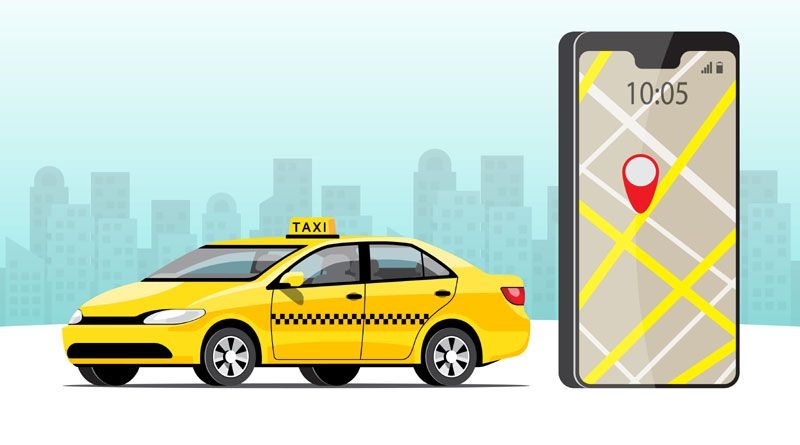

The sharing economy has transformed the way we access goods and services, disrupting traditional business models and creating new opportunities for entrepreneurs. At the forefront of this revolution is Uber, a pioneer in the sharing economy that has revolutionized the transportation industry. However, it’s not just Uber that is driving this change. Uber clone apps have emerged, replicating the successful business model and expanding the impact of the sharing economy across various sectors.
The success of Uber paved the way for the development of the Uber clone app. These clone apps adopt the same business model and technology stack as Uber, enabling entrepreneurs to launch their own on-demand transportation platforms quickly. By capitalizing on the proven formula of Uber, these clone apps have become a prominent force in the market, catering to the growing demand for convenient and affordable transportation services.
Uber clone apps have had a profound impact on the transportation industry. They have democratized transportation by providing a seamless and user-friendly experience for both riders and drivers. With just a few taps on their smartphones, users can request a ride, track the driver’s location, and make cashless payments. This level of convenience has made transportation more accessible to a broader audience, revolutionizing the way we commute.
Moreover, taxi booking apps have empowered drivers by offering them flexible earning opportunities. Individuals can become independent contractors and leverage their vehicles to earn income. This has given rise to the gig economy, allowing people to work on their terms and supplement their earnings through part-time or full-time driving.
Beyond transportation, Uber clone apps have expanded the sharing economy to encompass a wide range of services. These apps have diversified their offerings, providing on-demand services like food delivery, grocery delivery, handyman services, and much more. By connecting users with service providers through a single platform, these apps have streamlined the process, saving time and effort for both parties involved.
For instance, users can order food from their favorite restaurants and have it delivered right to their doorstep with a few taps on their smartphones. This level of convenience has transformed the food delivery industry, opening up new business opportunities for restaurants and enabling customers to enjoy a wide variety of cuisines from the comfort of their homes.
The emergence of taxi apps has presented aspiring entrepreneurs with an array of advantages and opportunities. Launching an Uber clone app allows entrepreneurs to enter the sharing economy with a proven business model and established technology infrastructure. These clone apps are highly customizable, providing entrepreneurs with the flexibility to tailor the app to their target audience and add unique features to differentiate themselves from competitors.
Furthermore, Uber clone apps offer immense scalability. As the user base grows, entrepreneurs can expand their services to new cities or regions, tapping into untapped markets and generating additional revenue streams. This scalability, coupled with the low barriers to entry, makes taxi apps an attractive proposition for entrepreneurs looking to venture into the sharing economy.
The rise of Uber clone apps has disrupted traditional business models, particularly in the transportation industry. Traditional taxi services have faced significant challenges in competing with the convenience, affordability, and user experience offered by Uber clone apps. Many traditional taxi companies have had to adapt by adopting similar app-based models or partnering with existing Uber clone platforms to remain relevant.
Additionally, the impact of ride-hailing apps extends beyond transportation. Various service providers, such as grocery stores, restaurants, and local businesses, have had to adapt to the changing landscape of the sharing economy. They have embraced on-demand delivery services and partnered with Uber clone platforms to reach a wider audience and stay competitive in an increasingly digital marketplace.
Looking ahead, the future of Uber clone apps in the sharing economy is promising. We can expect to see further advancements in technology, such as the integration of autonomous vehicles, which could revolutionize transportation even further. However, challenges persist. Regulatory frameworks, safety concerns, and customer trust are among the key hurdles that must be addressed to ensure the sustainable growth of Uber clone apps and the sharing economy as a whole.
The impact of Uber clone apps in the sharing economy cannot be understated. These clone apps have not only transformed the transportation industry but also extended the concept of sharing to various other services. Entrepreneurs have seized the opportunities presented by Uber clone apps to enter the sharing economy and create innovative platforms that cater to the evolving needs of consumers. As the sharing economy continues to evolve, embracing innovation and adapting to change will be crucial to harnessing its full potential.
The person you’re meeting through this article isn’t a teacher, a psychologist, or some expert…
Trade shows are one of the most effective ways to promote your business, build relationships,…
One of the most fulfilling and important duties of a parent is raising autonomous children.…
Building or renovating in Alberta? Then you’ll need to understand the construction rules. They’re there…
In a world where speed, flexibility, and innovation rule the business game, traditional hiring models…
A jumbo mortgage is a mortgage that exceeds the loan amount limits set by the…